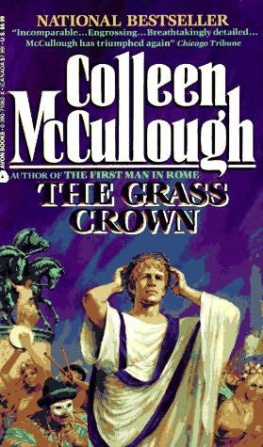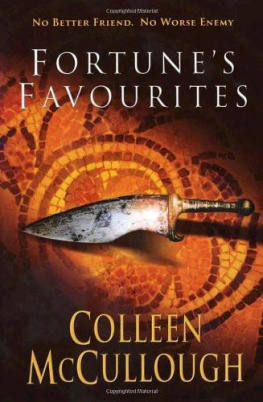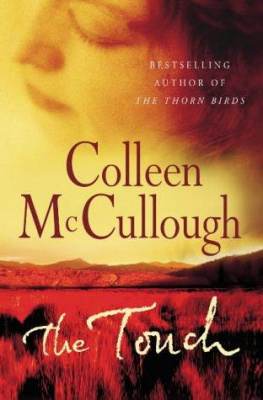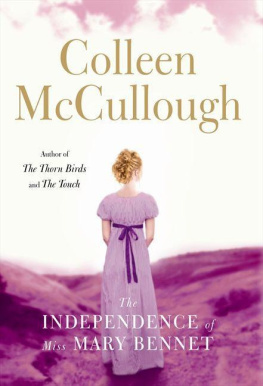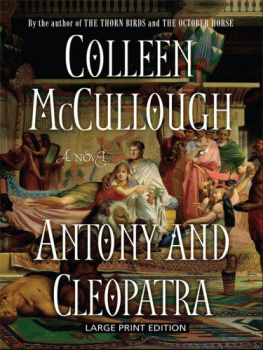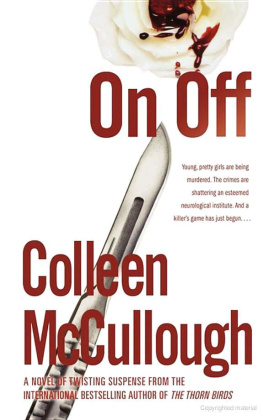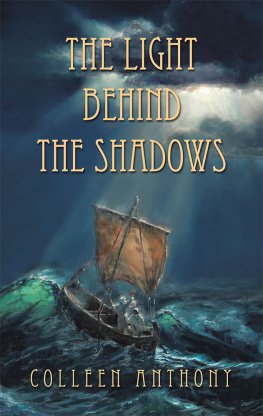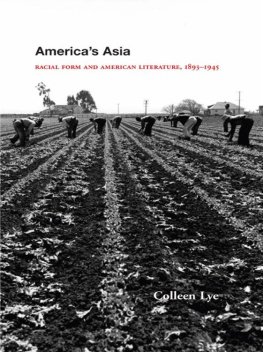Colleen McCullough - The Thorn Birds
Here you can read online Colleen McCullough - The Thorn Birds full text of the book (entire story) in english for free. Download pdf and epub, get meaning, cover and reviews about this ebook. year: 1979, publisher: HarperCollins, genre: Art / Science fiction. Description of the work, (preface) as well as reviews are available. Best literature library LitArk.com created for fans of good reading and offers a wide selection of genres:
Romance novel
Science fiction
Adventure
Detective
Science
History
Home and family
Prose
Art
Politics
Computer
Non-fiction
Religion
Business
Children
Humor
Choose a favorite category and find really read worthwhile books. Enjoy immersion in the world of imagination, feel the emotions of the characters or learn something new for yourself, make an fascinating discovery.

- Book:The Thorn Birds
- Author:
- Publisher:HarperCollins
- Genre:
- Year:1979
- Rating:5 / 5
- Favourites:Add to favourites
- Your mark:
- 100
- 1
- 2
- 3
- 4
- 5
The Thorn Birds: summary, description and annotation
We offer to read an annotation, description, summary or preface (depends on what the author of the book "The Thorn Birds" wrote himself). If you haven't found the necessary information about the book — write in the comments, we will try to find it.
The Thorn Birds — read online for free the complete book (whole text) full work
Below is the text of the book, divided by pages. System saving the place of the last page read, allows you to conveniently read the book "The Thorn Birds" online for free, without having to search again every time where you left off. Put a bookmark, and you can go to the page where you finished reading at any time.
Font size:
Interval:
Bookmark:


for
big sister
Jean Easthope
There is a legend about a bird which sings just once in its life, more sweetly than any other creature on the face of the earth. From the moment it leaves the nest it searches for a thorn tree, and does not rest until it has found one. Then, singing among the savage branches, it impales itself upon the longest, sharpest spine. And, dying, it rises above its own agony to outcarol the lark and the nightingale. One superlative song, existence the price. But the whole world stills to listen, and God in His heaven smiles. For the best is only bought at the cost of great pain. Or so says the legend.
On December 8th, 1915, Meggie Cleary had her fourth birthday. After the breakfast dishes were put away her mother silently thrust a brown paper parcel into her arms and ordered her outside. So Meggie squatted down behind the gorse bush next to the front gate and tugged impatiently. Her fingers were clumsy, the wrapping heavy; it smelled faintly of the Wahine general store, which told her that whatever lay inside the parcel had miraculously been bought, not homemade or donated.
Something fine and mistily gold began to poke through a corner; she attacked the paper faster, peeling it away in long, ragged strips.
Agnes! Oh, Agnes! she said lovingly, blinking at the doll lying there in a tattered nest.
A miracle indeed. Only once in her life had Meggie been into Wahine; all the way back in May, because she had been a very good girl. So perched in the buggy beside her mother, on her best behavior, she had been too excited to see or remember much. Except for Agnes, the beautiful doll sitting on the store counter, dressed in a crinoline of pink satin with cream lace frills all over it. Right then and there in her mind she had christened it Agnes, the only name she knew elegant enough for such a peerless creature. Yet over the ensuing months her yearning after Agnes contained nothing of hope; Meggie didnt own a doll and had no idea little girls and dolls belonged together. She played happily with the whistles and slingshots and battered soldiers her brothers discarded, got her hands dirty and her boots muddy.
It never occurred to her that Agnes was to play with. Stroking the bright pink folds of the dress, grander than any she had ever seen on a human woman, she picked Agnes up tenderly. The doll had jointed arms and legs which could be moved anywhere; even her neck and tiny, shapely waist were jointed. Her golden hair was exquisitely dressed in a high pompadour studded with pearls, her pale bosom peeped out of a foaming fichu of cream lace fastened with a pearl pin. The finely painted bone china face was beautiful, left unglazed to give the delicately tinted skin a natural matte texture. Astonishingly lifelike blue eyes shone between lashes of real hair, their irises streaked and circled with a darker blue; fascinated, Meggie discovered that when Agnes lay back far enough, her eyes closed. High on one faintly flushed cheek she had a black beauty mark, and her dusky mouth was parted slightly to show tiny white teeth. Meggie put the doll gently on her lap, crossed her feet under her comfortably, and sat just looking.
She was still sitting behind the gorse bush when Jack and Hughie came rustling through the grass where it was too close to the fence to feel a scythe. Her hair was the typical Cleary beacon, all the Cleary children save Frank being martyred by a thatch some shade of red; Jack nudged his brother and pointed gleefully. They separated, grinning at each other, and pretended they were troopers after a Maori renegade. Meggie would not have heard them anyway, so engrossed was she in Agnes, humming softly to herself.
Whats that youve got, Meggie? Jack shouted, pouncing. Show us!
Yes, show us! Hughie giggled, outflanking her.
She clasped the doll against her chest and shook her head. No, shes mine! I got her for my birthday!
Show us, go on! We just want to have a look.
Pride and joy won out. She held the doll so her brothers could see. Look, isnt she beautiful? Her name is Agnes.
Agnes? Agnes? Jack gagged realistically. What a soppy name! Why dont you call her Margaret or Betty?
Because shes Agnes!
Hughie noticed the joint in the dolls wrist, and whistled. Hey, Jack, look! It can move its hand!
Where? Lets see.
No! Meggie hugged the doll close again, tears forming. No, youll break her! Oh, Jack, dont take her awayyoull break her!
Pooh! His dirty brown hands locked about her wrists, closing tightly. Want a Chinese burn? And dont be such a crybaby, or Ill tell Bob. He squeezed her skin in opposite directions until it stretched whitely, as Hughie got hold of the dolls skirts and pulled. Gimme, or Ill do it really hard!
No! Dont, Jack, please dont! Youll break her, I know you will! Oh, please leave her alone! Dont take her, please! In spite of the cruel grip on her wrists she clung to the doll, sobbing and kicking.
Got it Hughie whooped, as the doll slid under Meggies crossed forearms.
Jack and Hughie found her just as fascinating as Meggie had; off came the dress, the petticoats and long, frilly drawers. Agnes lay naked while the boys pushed and pulled at her, forcing one foot round the back of her head, making her look down her spine, every possible contortion they could think of. They took no notice of Meggie as she stood crying; it did not occur to her to seek help, for in the Cleary family those who could not fight their own battles got scant aid or sympathy, and that went for girls, too.
The dolls golden hair tumbled down, the pearls flew winking into the long grass and disappeared. A dusty boot came down thoughtlessly on the abandoned dress, smearing grease from the smithy across its satin. Meggie dropped to her knees, scrabbling frantically to collect the miniature clothes before more damage was done them, then she began picking among the grass blades where she thought the pearls might have fallen. Her tears were blinding her, the grief in her heart new, for until now she had never owned anything worth grieving for.
Frank threw the shoe hissing into cold water and straightened his back; it didnt ache these days, so perhaps he was used to smithying. Not before time, his father would have said, after six months at it. But Frank knew very well how long it was since his introduction to the forge and anvil; he had measured the time in hatred and resentment. Throwing the hammer into its box, he pushed the lank black hair off his brow with a trembling hand and dragged the old leather apron from around his neck. His shirt lay on a heap of straw in the corner; he plodded across to it and stood for a moment staring at the splintering barn wall as if it did not exist, his black eyes wide and fixed.
He was very small, not above five feet three inches, and thin still as striplings are, but the bare shoulders and arms had muscles already knotted from working with the hammer, and the pale, flawless skin gleamed with sweat. The darkness of his hair and eyes had a foreign tang, his full-lipped mouth and wide-bridged nose not the usual family shape, but there was Maori blood on his mothers side and in him it showed. He was nearly sixteen years old, where Bob was barely eleven, Jack ten, Hughie nine, Stuart five and little Meggie three. Then he remembered that today Meggie was four; it was December 8th. He put on his shirt and left the barn.
The house lay on top of a small hill about one hundred feet higher than the barn and stables. Like all New Zealand houses, it was wooden, rambling over many squares and of one story only, on the theory that if an earthquake struck, some of it might be left standing. Around it gorse grew everywhere, at the moment smothered in rich yellow flowers; the grass was green and luxuriant, like all New Zealand grass. Not even in the middle of winter, when the frost sometimes lay unmelted all day in the shade, did the grass turn brown, and the long, mild summer only tinted it an even richer green. The rains fell gently without bruising the tender sweetness of all growing things, there was no snow, and the sun had just enough strength to cherish, never enough to sap. New Zealands scourges thundered up out of the bowels of the earth rather than descended from the skies. There was always a suffocated sense of waiting, an intangible shuddering and thumping that actually transmitted itself through the feet. For beneath the ground lay awesome power, power of such magnitude that thirty years before a whole towering mountain had disappeared; steam gushed howling out of cracks in the sides of innocent hills, volcanoes spumed smoke into the sky and the alpine streams ran warm. Huge lakes of mud boiled oilily, the seas lapped uncertainly at cliffs which might not be there to greet the next incoming tide, and in places the earths crust was only nine hundred feet thick.
Font size:
Interval:
Bookmark:
Similar books «The Thorn Birds»
Look at similar books to The Thorn Birds. We have selected literature similar in name and meaning in the hope of providing readers with more options to find new, interesting, not yet read works.
Discussion, reviews of the book The Thorn Birds and just readers' own opinions. Leave your comments, write what you think about the work, its meaning or the main characters. Specify what exactly you liked and what you didn't like, and why you think so.

